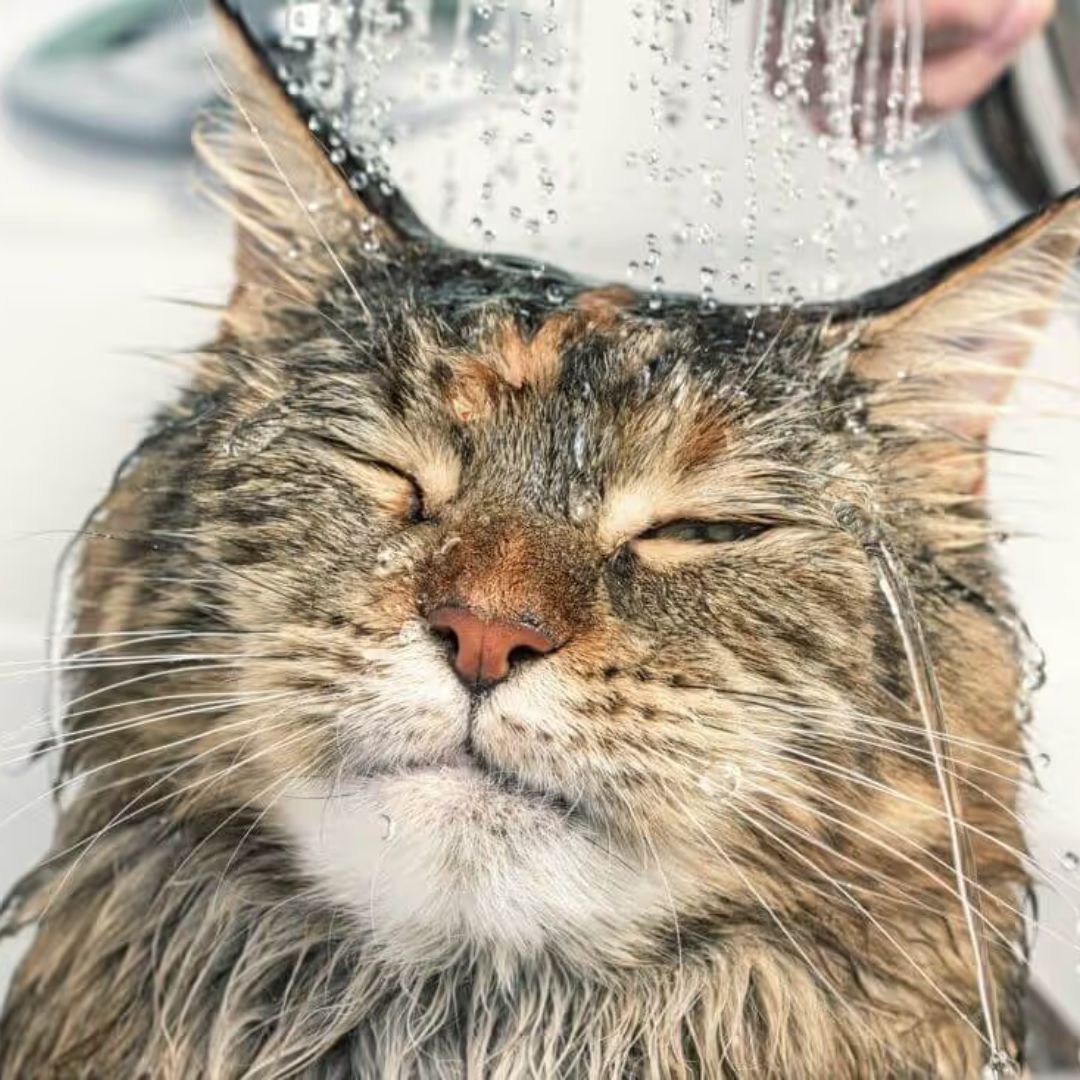
Is It Okay to Give Baths to Cats?
Share
Pet owners often find themselves overly concerned about their pets' health and cleanliness, sometimes going to extremes to ensure they have the best care. However, is all this preparation truly necessary? Many pet animals possess natural instincts for self-maintenance, such as licking themselves to keep their fur clean. This blog aims to tackle the common dilemma faced by cat owners regarding whether to bathe their cats and how frequently it should be done, providing comprehensive answers to these lingering questions.
Can We Give Baths to Cats?
Yes, cats can be given baths without risking their well-being. However, it's important to note that cats typically don't require baths unless necessary, such as when they're dirty or if it's been a while since their last grooming session. Cats are adept at self-cleaning by licking their fur, which helps remove matted fur and keeps them comfortable. Therefore, it's recommended to bathe cats every 4-5 weeks to maintain their health and cleanliness.
When preparing to bathe a cat, there are several essential items to have on hand, which can be acquired with advice from a veterinarian for optimal results.
Firstly, a wide tub filled with lukewarm water is crucial. Extreme temperatures can increase the cat's discomfort and stress during the bath.
Using a mild shampoo specifically formulated for cats is essential. Harsh chemicals can harm the cat's skin, potentially leading to allergies, rashes, or even rapid fur loss. Prioritizing the cat's health and well-being is crucial.
Wearing gloves during the bath is imperative to protect the cat owner's health and hygiene. This precaution helps prevent the transmission of diseases or infections while handling the cat.
Having two or more dry towels on hand is necessary for pat-drying the cat after the bath. Bathing cats can be messy, so having extra towels ensures proper cleanup.
A comb or brush is necessary for removing knots and matted fur from the cat's coat.
Consulting a veterinarian before purchasing shampoos, soaps, or conditioners for the cat is advisable to prevent any potential health or hygiene complications.
Giving a bath to a cat can be challenging since most cats resist the idea and may try to escape, adding stress to the cat owners. Prioritizing the cat's comfort during the bath is essential, achieved through proper care and precautions.
It's crucial to use lukewarm water and gentle movements when applying shampoo to the cat. Avoid washing the cat's head to prevent water or shampoo from getting into their ears or eyes, which could lead to complications.
After the bath, immediately pat the cat dry with a towel to prevent them from catching a cold. A cat-specific brush or comb can then be used to remove any knots or matted hair from their fur.
Following these steps should make the bathing process easier. However, if the cat resists strongly, such as by biting or scratching, it's advisable to proceed slowly, allowing the cat time to adjust. If difficulties persist, consulting a veterinarian is recommended for further assistance.
Exceptional cases – Giving a Bath to Pregnant Cats
Bathing a cat, especially a pregnant one, can induce stress and anxiety in the feline. It's crucial to handle such situations with care and seek guidance from a veterinarian before proceeding. Pregnant cats are particularly sensitive, and there are increased risks involved.
As a precaution, it's advisable to avoid using chemicals such as shampoos and soaps, as well as warm water during baths for pregnant cats. If a bath is deemed necessary, the cat owner should limit the process to gently brushing the cat's fur while being mindful of the cat's comfort and safety.
Every action taken with a pregnant cat must be approached with caution and care to minimize any potential risks or discomfort to the feline. Consulting a veterinarian ensures that the cat's well-being is prioritized and any necessary precautions are taken.
conclusion
In conclusion, it's evident that cats generally do not require baths, but if they are bathed, it should be done with utmost consideration for their comfort and safety.
Maintaining your cat's health and hygiene is essential for their overall well-being. While cats are adept at self-grooming, it's crucial for cat owners to remain vigilant and seek advice from a veterinarian when in doubt.
By prioritizing the cat's needs and consulting professionals when necessary, cat owners can ensure their furry companions lead healthy and happy lives.
